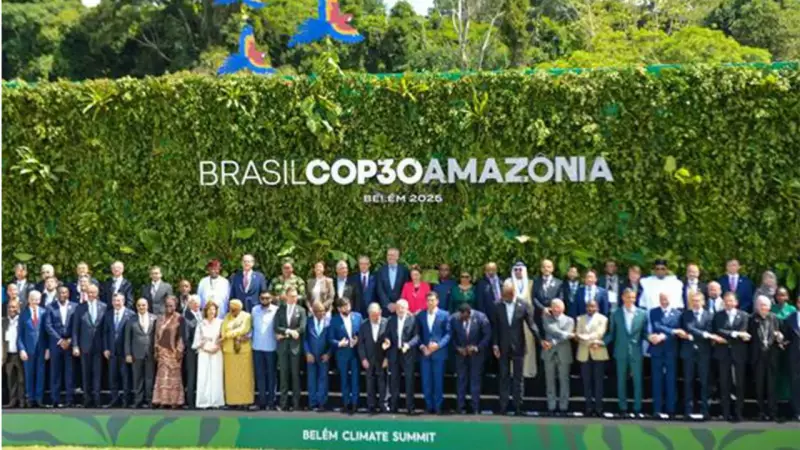
India has officially welcomed the significant resolutions emerging from the 30th session of the UN climate conference (COP30), asserting that the outcomes rightly place the responsibility for climate change mitigation on developed nations while addressing the urgent adaptation needs of the developing world. The conference, which concluded in the Brazilian city of Belem, has been hailed for its focus on equity and climate justice.
A Major Leap for Adaptation Finance
One of the most critical decisions at COP30 was the commitment to triple the financial support for adaptation in developing countries. This move will increase the current annual adaptation finance from $40 billion to approximately $120 billion by 2035. This substantial fund is intended to be part of the overall climate finance goal of $300 billion per year by the same deadline.
Union Environment Minister Bhupender Yadav, in a post on social media platform X, praised the Brazilian Presidency's efforts. He described the substantive decision on adaptation as a manifestation of the principle of equity. He emphasized that it is a clear recognition of the overwhelming need for developing nations to build resilience against the adverse impacts of climate change.
Addressing Unilateral Trade Measures and a 'Just Transition'
The COP30 agreement also made significant strides in addressing India's long-standing concerns over unilateral trade measures, such as the European Union's Carbon Border Adjustment Mechanism (CBAM), set for implementation next year. This mechanism would impose a border tax on carbon-intensive imports like iron, steel, aluminium, and cement, disproportionately affecting exports from developing countries like India and China.
The final text from Belem acknowledged these concerns, explicitly stating that climate change response measures must not create disguised restrictions on international trade. In its official statement, delivered at the closing plenary, India thanked the Presidency for allowing a discussion on these trade-restrictive measures, which it argued violate the core principles of equity and Common But Differentiated Responsibilities and Respective Capabilities (CBDR-RC) of the UN climate convention and the Paris Agreement.
Furthermore, the conference decided to establish a just transition mechanism to support workers and communities during the shift to clean energy. India labeled this a significant milestone, expressing hope that it would help embed the principles of equity and climate justice into global and national-level actions.
A Foundation for Future Climate Justice
The outcomes of COP30 are largely aligned with India's consistent position on the global stage. The nation has repeatedly argued that developing countries should not be forced to compensate for the failures of historical emitters. The decisions in Belem, including the launch of a global implementation accelerator to bridge the gap in current climate plans, mark a beginning in reversing this trend.
India's statement stressed that issues of unfair trade barriers could no longer be ignored, and the steps taken at COP30 represent a crucial move towards a more balanced and just global climate framework.





